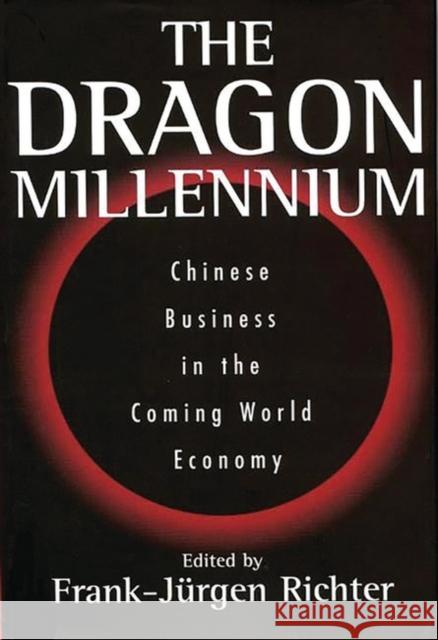The Dragon Millennium: Chinese Business in the Coming World Economy » książka
The Dragon Millennium: Chinese Business in the Coming World Economy
ISBN-13: 9781567203530 / Angielski / Twarda / 2000 / 240 str.
Already the world's third largest economic power, China presents enormous potential for businesses worldwide. Opportunities abound, and despite current economic crises throughout Asia, Richter and the contributors to this unique volume are convinced that opportunities in China can only increase. They explore and analyze these opportunities and the management practices that implement them. In doing so they study the Chinese economy, forecast the future of Chinese business organization, and assess China's place in the coming global economy. Recent developments in the Chinese economy show how Chinese firms actively pursue new strategies to shape their organizations. The current Asian crisis will radically alter the patterns of doing business in China, and Richter and his contributors explain how Western firms can cope with these ongoing changes. Other books, usually from the Western viewpoint, tend to describe only the present structure of the Chinese economy. Richter's looks at it from China's viewpoint and advocates a dynamic approach to the study of Chinese organizations. The analytical scope of the book concentrates more thoroughly on transforming organizations' structures than is found in other mainstream studies. Their book is thus a true inside view of China's economic and business structures, by people who have studied and know it intimately--a book that will help corporate executives and their academic colleagues appreciate China's vitality and understand the reasons for her optimism.
Although knowledge of China is growing it still remains relatively sparse, considering the rise to prominence of Chinese business enterprises. Richter and his Chinese experts (visionaries he calls them) seek to fill the gaps. They look at the complex questions associated with the concept of ownership and control in China and address economic policy and the development of the Chinese firm. They look at the development path of some selected industries, then itemize the challenges that multinational companies face in China, ending with a discussion of a hypothetical way of managing. All of the contributors are members of the worldwide Chinese business and academic communities. The research presented inspires further academic discourse and managerial policy in face of evolving Chinese reality. The book supplies expert knowledge and support for business practitioners, policy analysts, scholars and students in China and abroad.











